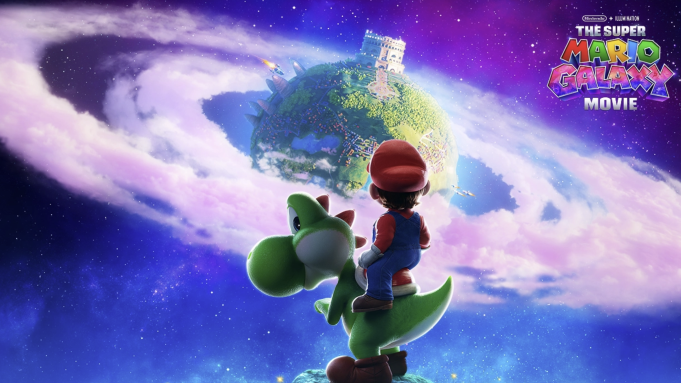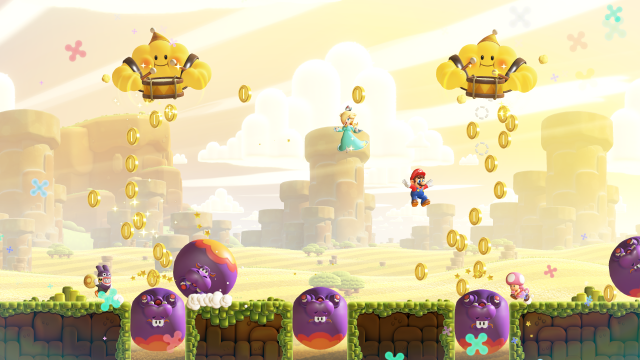Super Mario’s 40th anniversary has reignited interest in Nintendo’s formative years, with a newly surfaced BBC Archive segment shedding light on the unique culture at the company's Kyoto headquarters.
This rare footage, originally broadcast during BBC's The Money Programme on March 25th, 1990, offers an invaluable look into Nintendo at a pivotal time—when titles like Super Mario Bros.
3 were setting global sales records and propelling Nintendo to dominance in both Japan and North America. The BBC crew’s visit stands out for its behind-the-scenes perspective, capturing a period when public access to major Japanese development studios was virtually unheard of.
The segment features a brief interview with celebrated game designer Shigeru Miyamoto, as well as candid observations about the work environment that helped define Nintendo’s iconic legacy. The unique company culture at Nintendo is particularly evident in the footage.
Despite generating substantial revenue for Nintendo, the developers are shown receiving “ordinary salaries” and wearing uniforms adorned with the company’s logo—details that, as the BBC journalist notes, were far less common in Western game studios at the time.
This workplace environment, formal yet collaborative, underscores the studio’s distinctive approach to nurturing creativity and brand identity. During his conversation with the BBC, Miyamoto addressed why Nintendo’s top talent chose to stay with the company rather than seeking opportunities elsewhere.
In journalistic summary, Miyamoto explained that while developers were not lavishly compensated solely based on commercial success, Nintendo acted as a sponsor in ways that extended beyond simple salaries.
The company routinely encouraged creative inspiration by funding visits to museums, trips to the movies, and even short excursions.
Miyamoto emphasized that these opportunities, coupled with the prestige of being associated with Nintendo, contributed greatly to employee satisfaction and loyalty. This strategy of investing in the personal and professional development of its staff arguably contributed to Nintendo’s long-standing ability to innovate, evidenced by their ability to continue producing critically acclaimed games across multiple generations, from the original NES era through to the current Nintendo Switch platform.
Super Mario, initially released in 1985, remains one of the best-selling video game franchises in history, having surpassed 400 million units sold worldwide as of 2024. The 1990 BBC Archive segment contextualizes a legacy that continues today.
With regular Nintendo Direct presentations, consistent hits on the Nintendo eShop, and a company culture focused on creative inspiration, Nintendo remains at the forefront of global gaming.
The rare glimpse inside the Kyoto headquarters is not just a window into the past, but also a testament to the enduring strategies and philosophies that drive Nintendo’s sustained success.
This rare footage, originally broadcast during BBC's The Money Programme on March 25th, 1990, offers an invaluable look into Nintendo at a pivotal time—when titles like Super Mario Bros.
3 were setting global sales records and propelling Nintendo to dominance in both Japan and North America. The BBC crew’s visit stands out for its behind-the-scenes perspective, capturing a period when public access to major Japanese development studios was virtually unheard of.
The segment features a brief interview with celebrated game designer Shigeru Miyamoto, as well as candid observations about the work environment that helped define Nintendo’s iconic legacy. The unique company culture at Nintendo is particularly evident in the footage.
Despite generating substantial revenue for Nintendo, the developers are shown receiving “ordinary salaries” and wearing uniforms adorned with the company’s logo—details that, as the BBC journalist notes, were far less common in Western game studios at the time.
This workplace environment, formal yet collaborative, underscores the studio’s distinctive approach to nurturing creativity and brand identity. During his conversation with the BBC, Miyamoto addressed why Nintendo’s top talent chose to stay with the company rather than seeking opportunities elsewhere.
In journalistic summary, Miyamoto explained that while developers were not lavishly compensated solely based on commercial success, Nintendo acted as a sponsor in ways that extended beyond simple salaries.
The company routinely encouraged creative inspiration by funding visits to museums, trips to the movies, and even short excursions.
Miyamoto emphasized that these opportunities, coupled with the prestige of being associated with Nintendo, contributed greatly to employee satisfaction and loyalty. This strategy of investing in the personal and professional development of its staff arguably contributed to Nintendo’s long-standing ability to innovate, evidenced by their ability to continue producing critically acclaimed games across multiple generations, from the original NES era through to the current Nintendo Switch platform.
Super Mario, initially released in 1985, remains one of the best-selling video game franchises in history, having surpassed 400 million units sold worldwide as of 2024. The 1990 BBC Archive segment contextualizes a legacy that continues today.
With regular Nintendo Direct presentations, consistent hits on the Nintendo eShop, and a company culture focused on creative inspiration, Nintendo remains at the forefront of global gaming.
The rare glimpse inside the Kyoto headquarters is not just a window into the past, but also a testament to the enduring strategies and philosophies that drive Nintendo’s sustained success.





